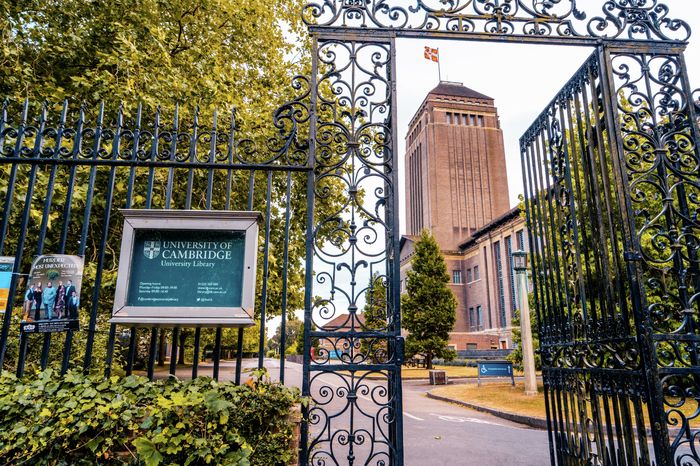Why do we need to glow up?
Jamilla Wichmann argues that the social media trend of the ‘glow up’ has a particularly harmful effect on Cambridge students

Rampant across social media is the idea of ‘glowing up’ – living to unlock the newest version of ourselves. Whilst this improvement should be able to come in any form, it is often portrayed as physical enhancement with clearer skin, fitter bodies, and whatever the trending purchase of the moment is. Capitalism thrives alongside the process of glowing up, with brands repeatedly leaning into this guise of self-improvement, which is then furthered by Instagram influencers. For younger viewers of such content in particular, it instils an understanding of self-betterment as dependent upon physical appearance, which is exceedingly problematic. But I digress.
The main problem with this culture of self-development is what it strips us of long-term, when our goal upon waking up each day becomes self-improvement. This agenda, pushed by social media, tends to very quickly leak into every aspect of our daily lives. What should be a guilt-free day of rest now feels sloppy and lazy. The occasional choice to eat fast food feels actively wrong. And all of this bleeds into self-deprecation and insecurity. The ‘glow-up’ pushed by the media does not allow us to simply be.
“The pressure to ‘glow-up’ bleeds into a general lack of self-assuredness”
What I mean by this is that it denies the slowness, and thus the appreciative mindset with which we should be living. How are we meant to feel satisfaction when we’re constantly falling behind on ticking boxes to achieve self-improvement? There is always something else – something new we have yet to change to ‘glow-up’ and fit a model – which changes every month. It is never-ending; there is no pause to stop and look at ourselves, to feel happy with ourselves as we are in the present.
And for the mind of the student, this has dire consequences. On top of the Cambridge workload, fighting against these artificial standards is an extra demand to perform, and one which is impossible to meet. The feeling of self-satisfaction is extremely important in academics – an appreciation for one’s own efforts is key to maintaining a healthy mental state. The ability to feel proud and worthy as a student is what builds self-confidence. And this is something all too easily dismantled by social media. By telling young, impressionable audiences they are not enough, the pressure to ‘glow-up’ bleeds into a general lack of self-assuredness, quickly impacting academic performance through insecurity.
“The ‘glow-up’ pushed by the media does not allow us to simply be"
Failing to achieve the image of perfection, as advertised by our media, opens the gates to a lack of confidence in general. When we are fighting for external validation, our system of internal validation tends to collapse. Not only does this lead to the homogenising of beauty (described as the ‘Instagram face’), but our own lens of adequacy narrows. Small normalities such as struggling with a large workload quickly become incapability, confirming the feeling of not being enough for high-pressure institutions like Cambridge. And all too often, our capitalist model benefits from this mindset.
To combat this, we all have a responsibility to think about the media we consume, how it makes us feel, and how it shapes our worldview. We have, as a generation, become desensitised to our awareness of others’ lives on social media, now available in excruciating detail. In a time where everything is accessible to us at the touch of a screen, to practice slowness and appreciation has never been so important. To live presently and enjoy the small moments, without being consumed by achieving something unattainable, is a privilege. Social media, once an escape from reality, is now something we need to escape from. And one of the ways to do so is to deconstruct the narratives it pushes onto us, like the need to ‘glow-up’. In doing so, our self-confidence will blossom, allowing us as students to flourish both personally and academically.
 News / Judge Business School advisor resigns over Epstein and Andrew links18 February 2026
News / Judge Business School advisor resigns over Epstein and Andrew links18 February 2026 News / Hundreds of Cambridge academics demand vote on fate of vet course20 February 2026
News / Hundreds of Cambridge academics demand vote on fate of vet course20 February 2026 News / Petition demands University reverse decision on vegan menu20 February 2026
News / Petition demands University reverse decision on vegan menu20 February 2026 News / CUCA members attend Reform rally in London20 February 2026
News / CUCA members attend Reform rally in London20 February 2026 News / Caius students fail to pass Pride flag proposal20 February 2026
News / Caius students fail to pass Pride flag proposal20 February 2026










